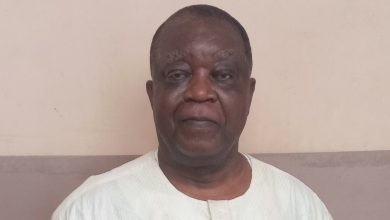ICPC chair: Cybercrime, corruption draining $80bn yearly — Africa’s future is under attack

Musa Aliyu, chairman of the Independent Corrupt Practices and Other Related Offences Commission (ICPC), says Africa is at risk of losing its future to the growing convergence of cybercrime, corruption and illicit financial flows (IFFs), which siphon more than $80 billion from the continent every year.
Delivering the keynote address at the Realnews 13th anniversary lecture series in Lagos on Thursday, Aliyu said Africa’s developmental aspirations, including the African Union’s Agenda 2063, will remain out of reach unless governments urgently strengthen cybersecurity, modernise regulations and plug financial leakages.
Speaking on the theme “Cybersecurity, illicit financial flows and achieving agenda 2063 in Africa,” the ICPC chairman said the digital age has created new routes for corruption and criminal innovation.
He revealed that in one ICPC probe, the commission uncovered falsified expense claims by a multinational company operating in Nigeria, funds he said could “fully rehabilitate at least 10 teaching hospitals.”
Illicit financial flows, Aliyu stressed, are not only an economic catastrophe but also a moral one.
“Every naira stolen is a classroom not built, a road abandoned, a hospital unequipped, and a generation short-changed,” he said.
He listed cyber-enabled crimes such as business email compromise, ransomware attacks, mobile money fraud and crypto laundering as major drivers of illicit financial flows.
According to him, ICPC has responded by creating a cybercrime and digital forensics unit, improving blockchain tracing, and deepening partnerships with the NFIU, financial institutions and global anti-corruption agencies.
Despite these strides, Aliyu admitted that criminal networks remain “faster, richer and more technologically agile than government agencies” due to limited resources, weak coordination and jurisdictional barriers.
Aliyu urged African governments to treat cybersecurity as a core development priority, adopting a six-pillar strategy covering stronger laws, institutional capacity, secure digital infrastructure, global cooperation, financial transparency and active citizen engagement.
He warned that the goals of Agenda 2063 will remain elusive if cyber-enabled corruption continues unchecked.
“The Africa we want is within reach — but only if we secure our digital space,” he said.
Maureen Chigbo, publisher of Realnews, said the annual lecture aims to stimulate policy reforms by raising awareness about illicit financial flows, which she described as a major obstacle to Nigeria’s development.
Chigbo urged journalists to intensify investigative reporting to expose hidden financial crimes.
The event was chaired by Ayotunde Phillips, former chief judge of Lagos state and ex-chair of LASIEC.
Panellists at the event called for regulatory upgrades, stronger cybersecurity collaboration and improved digital governance.
Lasbery Oludimu of Yellow Card Financial Inc. emphasised the need for modernised regulations, while Favour Femi-Oyewole of Access Bank said no single institution can tackle evolving cyber threats alone.
Abdulrahman Mustapha of the NFIU called for tighter regulations, stronger national database protection and digital governance that delivers public value.
During an interactive session, participants demanded stronger laws, broader public awareness and more practical policy actions from both government and the private sector.





